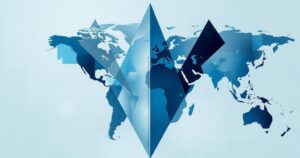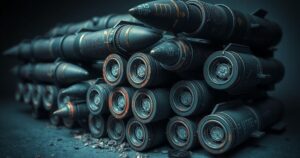Belgium Investigates Apple’s Alleged Use of Conflict Minerals from DRC

Belgium has launched an investigation into Apple’s alleged sourcing of ‘blood minerals’ from the DRC. Lawyers for the DRC accuse Apple of purchasing minerals linked to illegal mines and conflict. A UN report suggests M23 rebels control many of these mines, complicating ethical sourcing. Critics argue that the EU’s support of Rwanda undermines efforts to resolve these issues, as it lacks mineral resources.
Belgium has initiated an inquiry into allegations that Apple has sourced ‘blood minerals’ from the Democratic Republic of Congo (DRC). This move follows complaints filed by DRC lawyers against Apple subsidiaries in Belgium and France, accusing them of purchasing minerals such as tantalum, tin, and gold from illegal mines associated with conflict, child labor, and environmental harm. In response to these claims, Apple has asserted its commitment to verify that the minerals are procured from non-conflict zones, specifically from Rwanda.
Reports indicate that a significant number of these illicit mines are controlled by M23 rebels, who allegedly receive backing from the Rwandan government. A recent UN report indicates that these rebels impose illegal taxes on mining operations, thereby corrupting the global mineral supply chain. The DRC’s legal representatives contend that Apple has knowingly engaged with these illegal sourcing practices despite the company’s denials.
In light of these allegations, Apple has directed its suppliers to cease sourcing minerals from the DRC and Rwanda due to concerns regarding the efficacy of independent auditors and industry certification processes. While the DRC awaits a ruling from France, Belgium’s case has progressed, with authorities designating an investigating judge to examine the situation, reflecting the seriousness attributed to these allegations.
Lawyers representing the DRC have also reached out to European Commission President Ursula von der Leyen, drawing attention to the implications of a memorandum of understanding signed between the EU and Rwanda aimed at enhancing sustainable mineral programs. Critics argue that this agreement exacerbates the conflict, asserting that “Anyone with a high school education knows that Rwanda doesn’t have the minerals. It isn’t just Apple but the EU itself that is engaged in this sophistry.”
The investigation into Apple’s sourcing practices regarding minerals from the DRC underscores the broader concern surrounding the ethical implications of sourcing conflict minerals. The term ‘blood minerals’ refers to resources extracted from areas afflicted by violence and human rights abuses. In this instance, allegations have surfaced regarding the involvement of M23 rebel groups in the exploitation of these resources, raising questions about corporate responsibility and the integrity of supply chains.
In summary, the ongoing investigation by Belgium into Apple’s alleged sourcing of ‘blood minerals’ from the DRC highlights significant ethical issues within global supply chains. The claims suggest complicity with illegal mining activities linked to conflict, child labor, and environmental damage. As inquiries progress, both Apple and the EU face scrutiny regarding their roles and responsibilities in addressing these pressing ethical concerns.
Original Source: www.belganewsagency.eu








